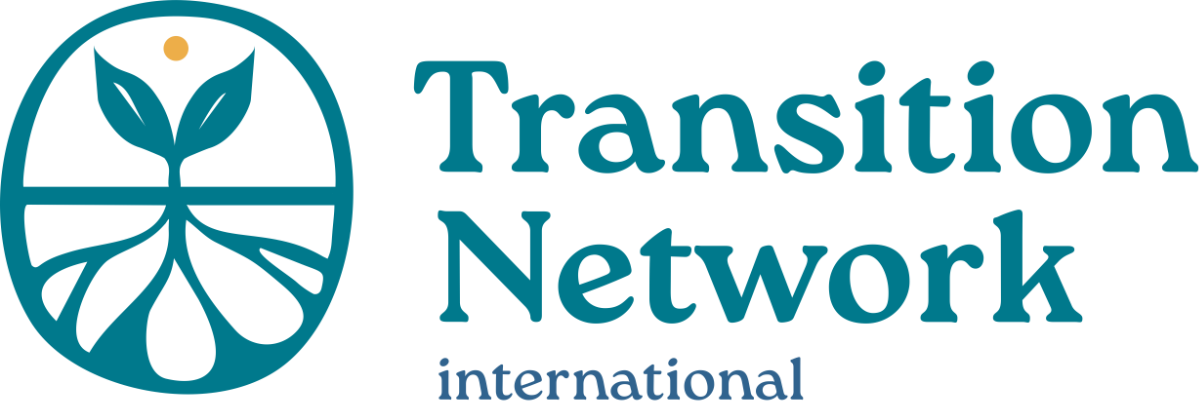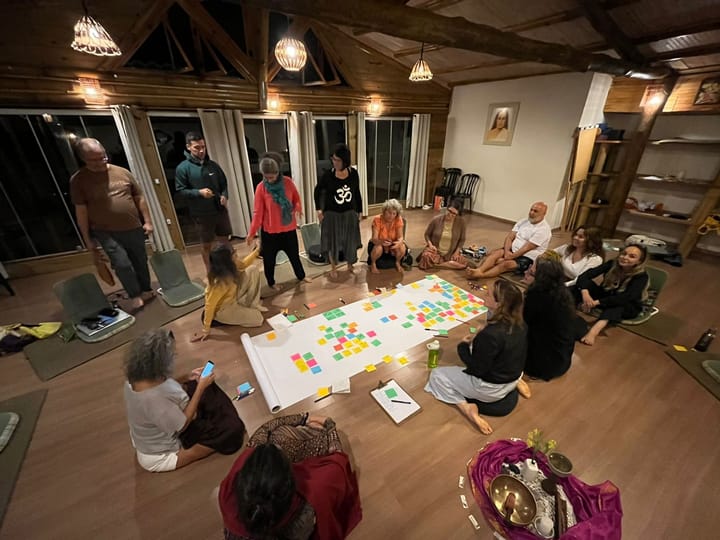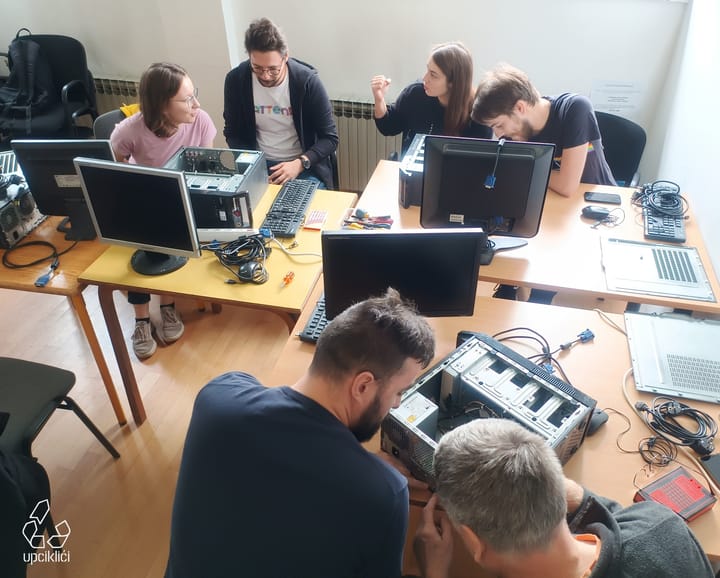Work Areas for Seed Funding and Grant Making: Results from the Movement Consultation
Find out about the results of the 2025 consultation on Territories, Hubs and local groups work areas for Seed Funding and Grant making
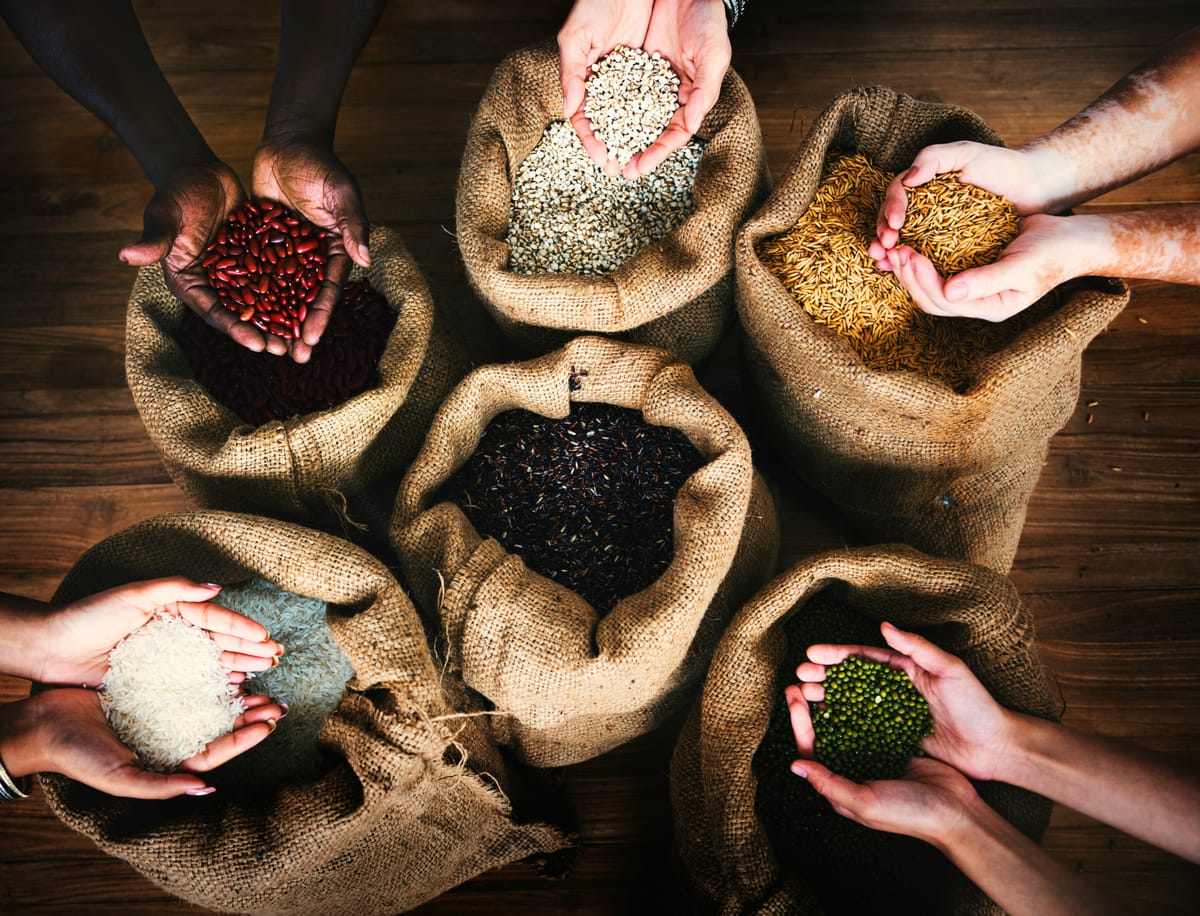
This report was written by Filipa Pimentel (Engagement Lead Link) and Tanya Medukha (Fundraising role) on July 2025.
Introduction
For quite some time, members of Transition Network international (TNi) have recognized how important seed funding and grant distribution are for Transition Hubs and local groups. This became especially clear during the recent Hubs' self-assessment process, where many groups reminded us how impactful the last round of seed funding had been for them a few years ago. Some were so eager to get started that they pitched their current work during the consultation process.
This year, TNi prioritized the exploration of relaunching Seed Funding and to provide grants that support the work of both Transition Hubs and, potentially, local groups.
As a first step —because we need to understand what kinds of work need to be resourced on the ground— we invited people to fill out a short form, which was closed at the end of May 2025.
Now, it's time to share what we've learned from your responses. Thank you, everyone who contributed!
Who contributed
A total of 69 responses were received, 50 of which were from local groups/projects, and the rest came from people self-identifying as part of Hubs and Territories.
The following official Transition Hubs/emergent Hub responded to the form: Australia, Belgium (francophone), Brazil, Colombia, Croatia, Finland, London, Mexico, Paris and Shambhala. Abya Yala contributed as an official Territory. A couple of those self-identified Hubs or Territories are not listed as official, in the Hubs Group/TNi. In some cases, a group, a hub or a territory contributed with more than one response.
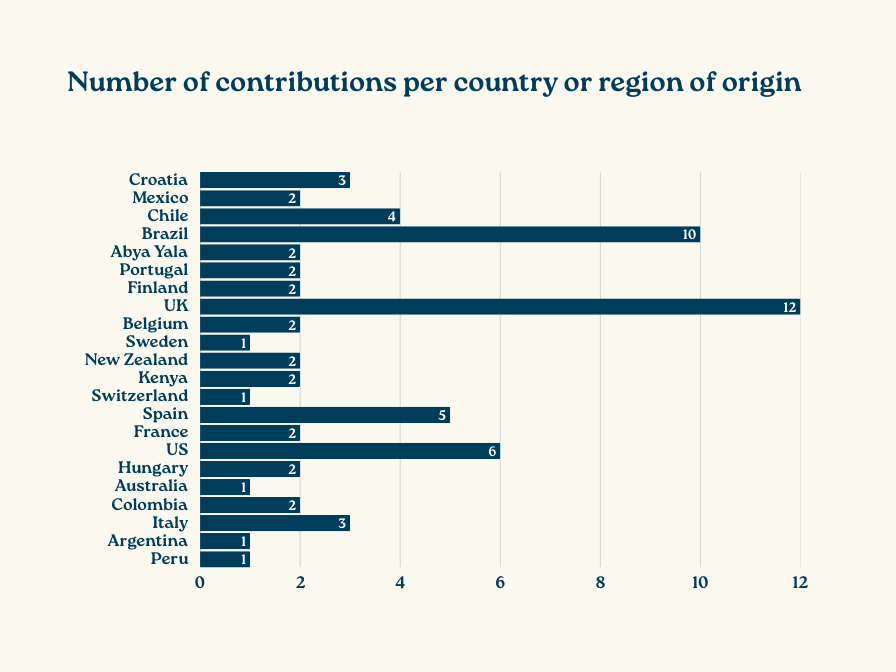
Key observations:
- We’re celebrating the fact that, for the first time, we received feedback from local groups in Kenya and Peru.
- The higher number of responses from groups in the UK may be due to the high density of local groups in the territory, as well as the Transition Together project, which distributed a substantial amount of seed funding using a similar process. The second-highest number of responses came from Brazil, showcasing a strong connection that Brazilian Hub maintains with the local groups.
- Adding up all contributions from Central and South America (covered by the Abya Yala Territory)—Argentina, Brazil, Chile, Colombia, Mexico, and Peru—we received a total of 22 responses.
- The European continent contributed 30 responses. It’s interesting to note that this number is not proportional to the higher density of local groups in Europe.
Activity areas
In the form we asked contributors to look at a list of categories and share with us:
- The ones that were relevant in their context (projects areas that they might want to explore through seed-funding),
- and/or work that is already being done or emerging in their groups that they would want to continue to work on.
Below you will find the graphics with the results, as well as the text and data below each of them, so they translate to your language and are more accessible.

Food & Land Stewardship:
- Urban & Community Agriculture = 48
- Sustainable Food Systems = 38
- Food circularity & Waste = 34
- Regenerative Land Practices for Growing Food = 43
- None of these = 12

Ecosystem & Climate Resilience
- Climate Action, Mitigation, Adaptation = 40
- Conservation & Biodiversity = 49
- Nature-Based Solutions = 41
- Disaster Resilience & Relief = 20
- Pollution Clean up & Waste Reduction = 24
- Rewilding & Ecological Restoration = 34
- None of these = 6

Community, Culture & Equity
- Collective Visioning = 53
- Health & Wellbeing = 46
- Lifelong Learning & Education = 54
- Culture & Celebrations = 52
- Equity & Inclusion = 36
- Circular Economy & Resource Sharing = 51
- Justice & Advocacy = 21
- Storytelling & Creative Expression = 40
- Visual & Performing Arts = 34
- Women's Leadership & Empowerment= 31
- Youth, Leadership, Engagement, Education = 39
- None of these = 0

Energy & Economic Transformation
- Innovative Alternative Energy Solutions = 18
- Local & Community Power = 23
- Energy Access & Distribution = 13
- Regenerative Economies & Ethical Business = 33
- Eco-friendly Mobility & Transport = 22
- None of these = 17

Top categories
- Urban & Community Agriculture = 48
- Sustainable Foods Systems = 38
- Conservation & Biodiversity = 49
- Climate Action, Mitigation, Adaptation = 40
- Collective Visioning = 53
- Health & Wellbeing = 46
- Lifelong Learning & Education = 54
- Storytelling & Creative Expression = 40
- Circular Economy & Resource Sharing = 51
- Regenerative Economies & Ethical Business = 33
3 key areas
Additionally to the previous graphics, we asked participants to name the 3 areas of their work most important for them. We clustered words with similar meanings and generated the following word cloud:
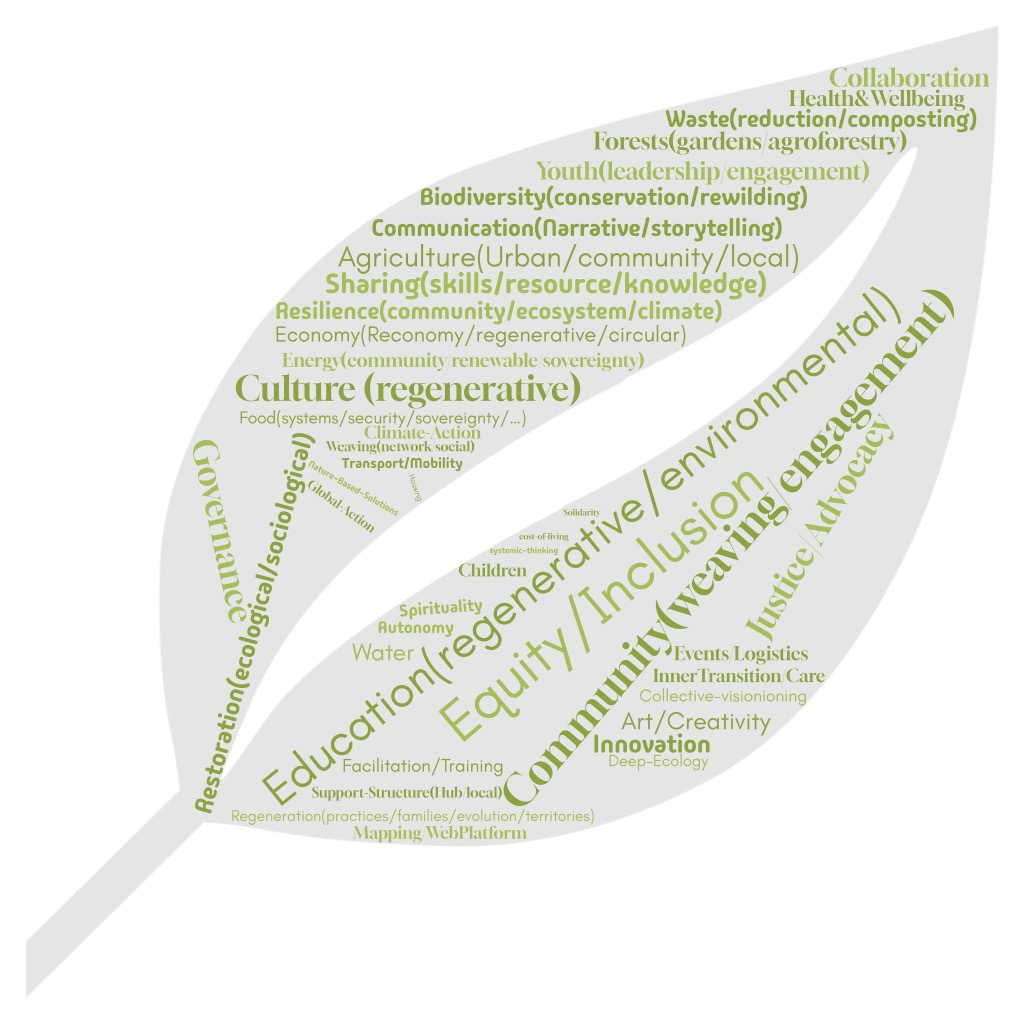
Missing categories
We asked the participants to identify missing categories and received the following:
Hubs/Territories
- Organisational strategy
- Governance
- Communications/ Mapping/ Storytelling/ Networking
- Resources/ Training/ Mentorship
- Awareness raising
Local Initiatives/projects
- Local currency
- Spiritual well being
- Land rights
- Water conservation/ rainwater utilization
- Awareness raising/ advocacy
- Local government/ public policy
From feedback collected and from observing how participants responded to the questions of the form, it is clear that the nature of the work done by Territories and Hubs is different from the work done by local groups/projects. This feedback will be taken into consideration in the design of the future Seed funding and grants design processes.
“I don't quite understand the categories, which seem to me to focus on Transition project actions and not Transition hubs (...) The actions they (Hubs) take are mainly about federating and networking, support (coaching, training, creation of thematic resources), inspiring communication, and carrying the voice of the movement (...)”
Josué Dusolier (Hub in francophone Belgium)
What now?
Now the TNi team (Engagement circle and Fundraiser) will be working on designing a Seed funding / Grants process proposal.
You will hear about that once it is ready 🙂 — Very like around mid-October 2025.
We stay in touch!
